第48章 XXIII.(4)
Mrs. March remained with an unrequited curiosity concerning their different colors and different caps, and she tried to make her husband find out what they severally meant; he pretended a superior interest in the nature of a people who had such a passion for uniforms that they were not content with its gratification in their immense army, but indulged it in every pleasure and employment of civil life. He estimated, perhaps not very accurately, that only one man out of ten in Germany wore citizens' dress; and of all functionaries he found that the dogs of the women-and-dog teams alone had no distinctive dress; even the women had their peasant costume.
There was an industrial fair open at Leipsic which they went out of the city to see after supper, along with a throng of Leipsickers, whom an hour's interval of fine weather tempted forth on the trolley; and with the help of a little corporal, who took a fee for his service with the eagerness of a civilian, they got wheeled chairs, and renewed their associations with the great Chicago Fair in seeing the exposition from them. This was not, March said, quite the same as being drawn by a woman-and-dog team, which would have been the right means of doing a German fair; but it was something to have his chair pushed by a slender young girl, whose stalwart brother applied his strength to the chair of the lighter traveller; and it was fit that the girl should reckon the common hire, while the man took the common tip. They made haste to leave the useful aspects of the fair, and had themselves trundled away to the Colonial Exhibit, where they vaguely expected something like the agreeable corruptions of the Midway Plaisance. The idea of her colonial progress with which Germany is trying to affect the home-keeping imagination of her people was illustrated by an encampment of savages from her Central-African possessions. They were getting their supper at the moment the Marches saw them, and were crouching, half naked, around the fires under the kettles, and shivering from the cold, but they were not very characteristic of the imperial expansion, unless perhaps when an old man in a red blanket suddenly sprang up with a knife in his hand and began to chase a boy round the camp. The boy was lighter-footed, and easily outran the sage, who tripped at times on his blanket. None of the other Central Africans seemed to care for the race, and without waiting for the event, the American spectators ordered themselves trundled away to another idle feature of the fair, where they hoped to amuse themselves with the image of Old Leipsic.
This was so faithfully studied from the past in its narrow streets and Gothic houses that it was almost as picturesque as the present epoch in the old streets of Hamburg. A drama had just begun to be represented on a platform of the public square in front of a fourteenth-century beer-house, with people talking from the windows round, and revellers in the costume of the period drinking beer and eating sausages at tables in the open air. Their eating and drinking were genuine, and in the midst of it a real rain began, to pour down upon them, without affecting them any more than if they had been Germans of the nineteenth century. But it drove the Americans to a shelter from which they could not see the play, and when it held up, they made their way back to their hotel.
Their car was full of returning pleasurers, some of whom were happy beyond the sober wont of the fatherland. The conductor took a special interest in his tipsy passengers, trying to keep them in order, and genially entreating them to be quiet when they were too obstreperous.
From time to time he got some of them off, and then, when he remounted the car, he appealed to the remaining passengers for their sympathy with an innocent smile, which the Americans, still strange to the unjoyous physiognomy of the German Empire, failed to value at its rare worth.
Before he slept that night March tried to assemble from the experiences and impressions of the day some facts which he would not be ashamed of as a serious observer of life in Leipsic, and he remembered that their guide had said house-rent was very low. He generalized from the guide's content with his fee that the Germans were not very rapacious; and he became quite irrelevantly aware that in Germany no man's clothes fitted him, or seemed expected to fit him; that the women dressed somewhat better, and were rather pretty sometimes, and that they had feet as large as the kind hearts of the Germans of every age and sex. He was able to note, rather more freshly, that with all their kindness the Germans were a very nervous people, if not irritable, and at the least cause gave way to an agitation, which indeed quickly passed, but was violent while it lasted. Several times that day he had seen encounters between the portier and guests at the hotel which promised violence, but which ended peacefully as soon as some simple question of train-time was solved.
The encounters always left the portier purple and perspiring, as any agitation must with a man so tight in his livery. He bemoaned himself after one of them as the victim of an unhappy calling, in which he could take no exercise. "It is a life of excitements, but not of movements," he explained to March; and when he learned where he was going, he regretted that he could not go to Carlsbad too. "For sugar?" he asked, as if there were overmuch of it in his own make.
March felt the tribute, but he had to say, " No; liver."
"Ah!" said the portier, with the air of failing to get on common ground with him.